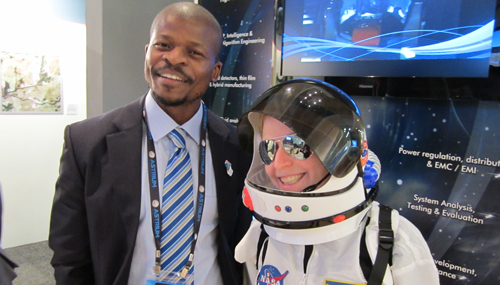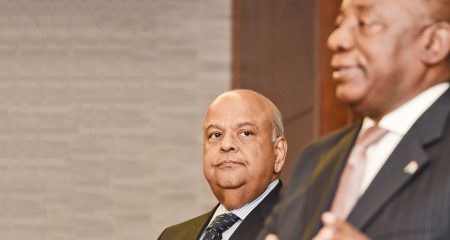
Defence company Denel appears keen to play down its association with the armaments industry and has started actively punting how it believes its research and development efforts are benefiting other industries, and even assisting SA’s ambitions to have a space programme.
Thendo Managa, marketing executive for engineering services at Denel division Denel Dynamics and chairman of the company’s youth forum, says every five or 10 years Denel’s biggest client, the SA National Defence Force, comes to the company with new problems in need of solutions.
“This ranges from rhino poaching to border controls and, with conflict happening increasingly in urban areas, there are always new challenges,” says Managa. “Sometimes we can adapt old solutions and sometimes we need to come up with new ones.”
Managa is the second chairman of the company’s youth forum, which was established in 2008 to give younger staff at Denel Dynamics a platform from which to communicate with the executive committee.
“The youth are more in touch with technology,” says Managa. “[Denel] wants to harness those new ideas and fresh perspectives and incorporate them into the company’s strategy.” He says the forum is also important because it gives the youth a voice and reminds them their job isn’t only to do as they’re told.
Denel Dynamics is also working to create what it calls a “knowledge hub” to encourage knowledge sharing because “there are so many different experts from different fields here”. Managa says the company runs internal competitions where any employee can present a paper on a new idea or product. The winner gets to attend an international engineering conference of their choice.
Managa says there is a misconception about the defence industry that all it does is to create “tools for killing”. He says that because of the company’s “wealth of experts”, it is called upon for input by many other industries, and will be involved in SA’s fledgling space programme.
“We do every kind of engineering except civil,” he says.
Although Denel Dynamics is “not a space company”, when it comes to SA’s aspirations in this area the company “has the technical know-how to contribute to the programme”.
As part of its training programmes, Denel gets new engineers to work on real problems, often with useful results. One such project has seen a team working on “sense and avoid” sensors for unmanned aerial vehicles. Managa says this could be a “global first”.
While these aerial vehicles inspire some of the less pleasing connotations that come to mind when one talks about a company like Denel, Managa says there are other applications for the technology.
“We’re talking about unmanned aerial observation platforms, which could be used for tracking natural disasters, assessing soil and crops for farming, and all sorts of other applications we haven’t even necessarily thought of yet.”
Managa says working in the defence industry is different to most people’s expectations. “In SA’s context, the best engineering skills are in the defence sector. In other fields, engineers’ jobs are often about maintaining the status quo. Here, engineers get experience from concept, through development to product [release] and in a wide range of fields.”
The project manager for the Rooivalk helicopter, Kobus Meiring, went on to create the electric Joule car on the back of the research he did while at Denel.
“That’s the type of skill you can grow in the defence industry,” says Managa. “It allows for developments outside of defence.” — Craig Wilson, TechCentral
- Subscribe to our free daily newsletter
- Follow us on Twitter or on Facebook
- Visit our sister website, SportsCentral (still in beta)




